Many people look forward to welcoming a Poodle into their home, especially if anyone in the family suffers from allergies. This is because Poodles are known for being hypoallergenic. However, despite this factor, many people wonder, do Poodles Shed?
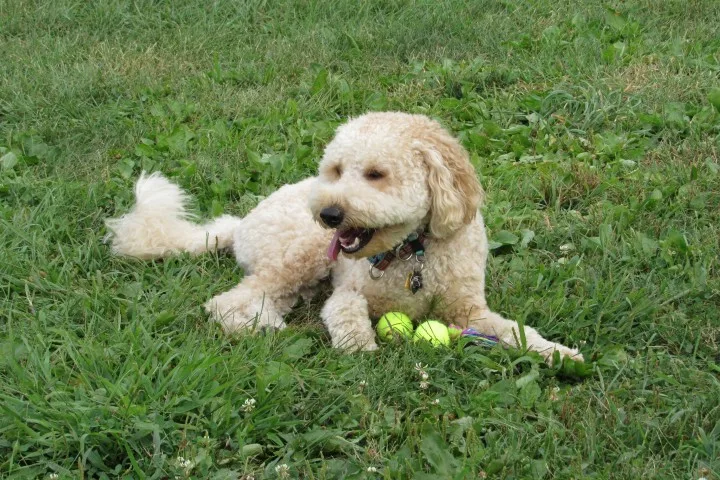 Poodles do shed, but a lot less than many other dog breeds, making them ‘hypoallergenic.’ However, Poodles are still susceptible to excessive shedding issues, mainly due to health problems. This is why it’s imperative that you groom your Poodle on a daily basis and care for their coat, so it keeps the shedding less.
Poodles do shed, but a lot less than many other dog breeds, making them ‘hypoallergenic.’ However, Poodles are still susceptible to excessive shedding issues, mainly due to health problems. This is why it’s imperative that you groom your Poodle on a daily basis and care for their coat, so it keeps the shedding less.
If you’re debating on welcoming a Poodle into your family, this article is worth a read, especially if you or anyone in your household has allergy issues. Shedding should be a huge factor when considering what type of dog to adopt.
The Main Reasons Poodles Shed
Poodles are a single-coat breed of dog as opposed to dogs that have a double coat consisting of a top and undercoat. For this reason, Poodles already shed less than many other breeds of dogs. The Poodle coat tends to be relatively thick and curly, which is another reason you may not notice as many hairs falling to the ground off of your family pet.
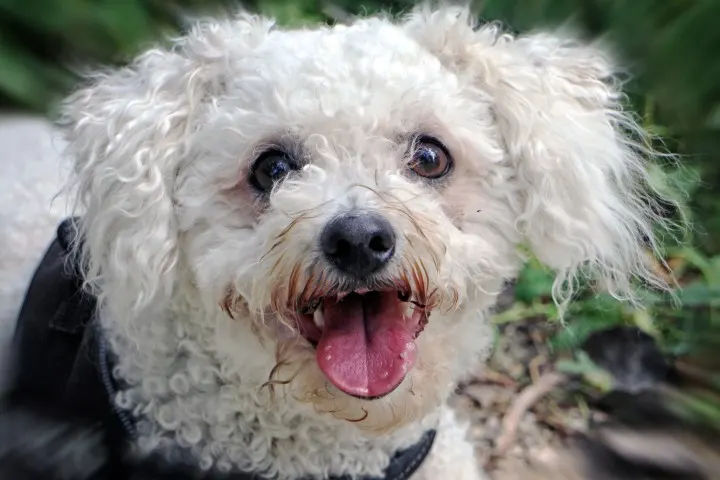 Single-coated dogs lack the undercoat that breeds with double coats have, which causes them to shed less. Often, when a dog is shedding excessively, that undercoat is coming out when the seasons change. Poodles lack that thick undercoat that is lost by other breeds when the weather changes, so this causes them to shed less.
Single-coated dogs lack the undercoat that breeds with double coats have, which causes them to shed less. Often, when a dog is shedding excessively, that undercoat is coming out when the seasons change. Poodles lack that thick undercoat that is lost by other breeds when the weather changes, so this causes them to shed less.
However, there are reasons that a Poodle might begin to shed more than what is typical for the breed. If your Poodle acquires certain skin conditions or comes down with certain illnesses, they can start losing more hair than usual. This is why you should pay attention to your dog’s coat and try to recognize if there might be an underlying issue.
Many things can cause your curly pup to shed more than expected. Several health conditions include inflammatory diseases, nutritional deficiencies, skin conditions, or typical imbalances.
Poodle Shedding Frequency
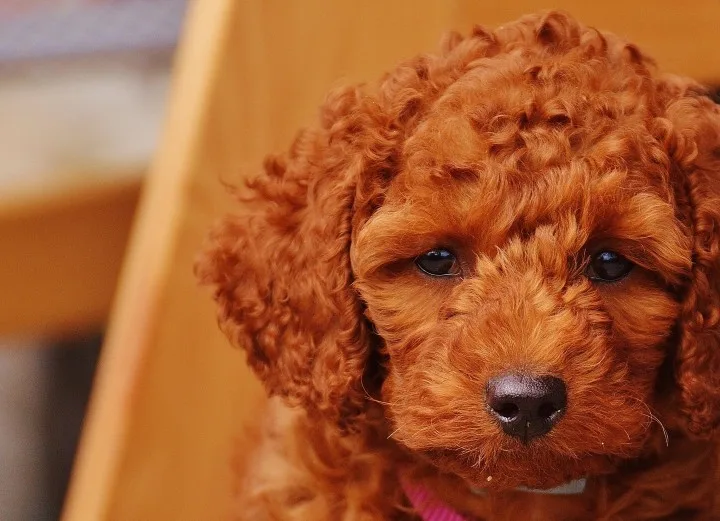 Everything with hair loses it on occasion. Humans lose roughly 100 hairs each day. In regards to Poodles, when it comes down to it, the bigger the dog, the more coat they have that will shed.
Everything with hair loses it on occasion. Humans lose roughly 100 hairs each day. In regards to Poodles, when it comes down to it, the bigger the dog, the more coat they have that will shed.
If shedding is indeed a primary concern for you and your family, one of the smaller breeds of Poodles, the miniature or toy Poodle, would likely be the best option as opposed to the Standard Poodle.
All dog coats go through different cycles of growth. The natural growth cycle consists of various phases. There is the phase where new hair grows, which is called the anagen phase. The phase in which it rests, or the catagen phase, and the phase in which the majority of the shedding occurs, is the telogen phase.
Poodles do tend to have a growth cycle that takes longer, and since this growth cycle happens over and over, the longer it takes to complete, the less potential shedding an owner of a poodle needs to worry about.
Dog Allergies
Your Poodle may also lose more of their coat than expected due to other things—allergies, for example. Your dog may have an allergy to something in their food, chemicals in their environment, or shampoo.
Sometimes allergies can make dogs itch so much that they begin losing hair from the scratching. They may also develop scabs from constant itching and hair loss.
Skin And Coat Issues
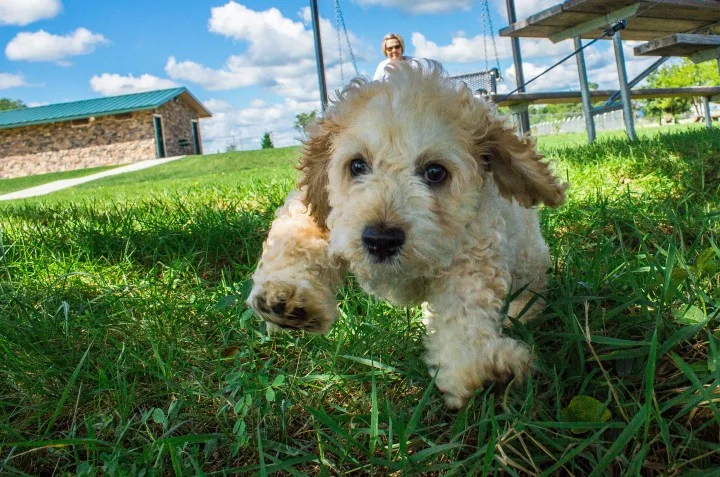 Sometimes your male Poodles may develop a condition called Castration Responsive Dermatosis as a result of being neutered. When this condition develops, hair loss starts near the going and spreads throughout the Poodle’s body.
Sometimes your male Poodles may develop a condition called Castration Responsive Dermatosis as a result of being neutered. When this condition develops, hair loss starts near the going and spreads throughout the Poodle’s body.
Red Mange is an allergic reaction to the tiny mites that live on dogs. This condition causes patches of hair on the Poodle to fall out.
Some Poodles have a genetic condition called Sebaceous Adenitis. This condition caused the coat of the dog to thin and sometimes to fall out entirely.
Are Poodles Hypoallergenic?
It’s important to remember that no breed of dog is 100% hypoallergenic. If a breeder of a dog is claiming that they have one, they are likely not telling the truth.
When comparing it to other breeds of dogs, the poodle is a lighter shedder of both fur and dander, making it a better choice for those with allergies to manage.
Poodle Grooming
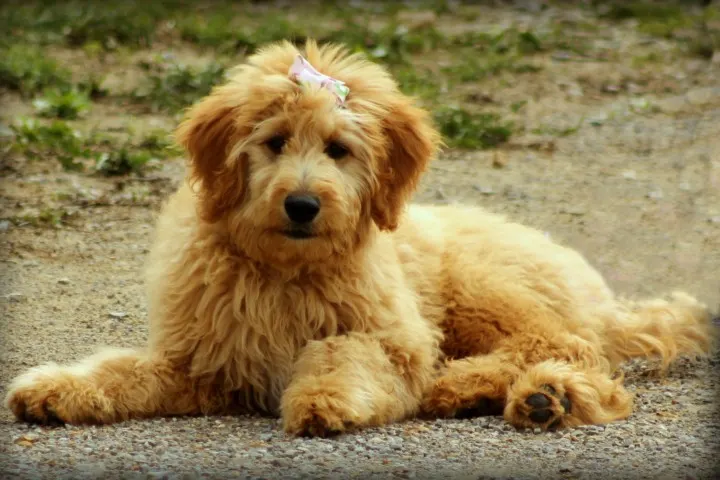 Even though the Poodle has a reputation for being a low-shedding breed compared to other breeds of dog, people mistakenly refer to them as a hypoallergenic dog. Due to this misinformation, many potential dog owners have become more interested in the three different types of Poodles.
Even though the Poodle has a reputation for being a low-shedding breed compared to other breeds of dog, people mistakenly refer to them as a hypoallergenic dog. Due to this misinformation, many potential dog owners have become more interested in the three different types of Poodles.
The thought of a dog breed that does not shed much may be intriguing to people, especially if you or someone in your family has allergies to pets.
How To Manage Your Poodle Shedding
If you feel like your Poodle is still shedding too much for your comfort, then there are some steps you can take to manage it a bit better.
Brushing
If you start training them when they are young, and you give them treats when you’re finished, Poodles especially love being groomed.
It’s best to brush your poodle on a schedule to prevent excess hair from being trapped in their curly coat. You should be sure the brush you have chosen to use is sturdy and wide enough to allow the coat to be detangled as the dog is brushed, but it also needs to be soft enough that it doesn’t hurt your skin when you run it down your arm.
Poodles need to be brushed very frequently. By maintaining a daily bruising schedule, you can be sure that your Poodle’s curls and coat stay healthy and give you less overall shedding to deal with.
Bathing & Shampoo
Bathing should be a regular part of caring for your Poodle. A mild shampoo should be chosen for use on a schedule that fits your dog’s needs. Some people find their Poodles need to be bathed once a week, while others can get away with one time per month. It will depend on the preference of both you and your dog.
Diet
High-quality dog food can cost considerably more amount of money, but it is more likely to include the vitamins, minerals, and amount of protein that your dog needs.
Feeding your high-quality dog food that meets his needs should pay off in the long run by reducing the number of allergies your dog might develop, as well as other issues associated with lower-quality meals for your pet.
Purchasing foods that don’t contain additives such as colors, sweeteners, and fillers such as grains can also help with shedding excessively by helping with itching.
Poodles can develop food sensitivities that, if gone untreated, can lead to more severe problems. You should keep track of the ingredients in your Poodle’s food to monitor reactions such as shedding excessively.
Supplements
If you have problems with your Poodle’s coat, the omega-3 fatty acid is a supplement you can give your puppy to help improve his skin and coat.
Supplements are a great way to keep up with the amount of omega-3 fatty acids your dog needs. Flaxseed is another way to help improve excess shedding.
Excessive Shedding
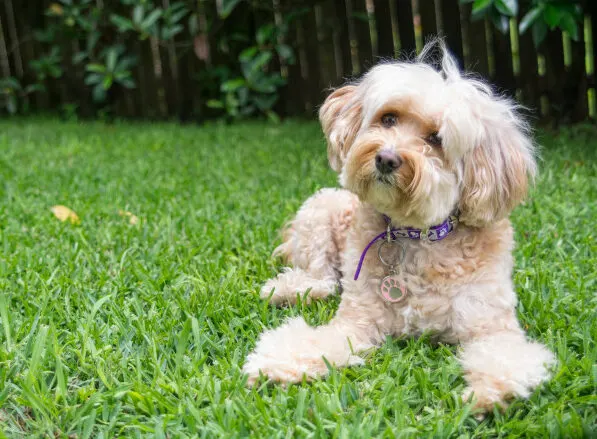 We’ve covered that shedding is standard for all dogs, so how do we determine what normal shedding versus an abnormal loss of fur in our poodles is?
We’ve covered that shedding is standard for all dogs, so how do we determine what normal shedding versus an abnormal loss of fur in our poodles is?
The growth cycle of the Poodle is long, as we’ve established. We’ve also established that Poodles have a single coat, not a double coat, where the underlayer is shed during the beginning of the cold season. You should see a pattern in your dog and be able to start to recognize what is average hair loss and what is abnormal.
Some Poodles become afflicted with alopecia, which causes them to lose patches of hair, resulting in bald spots. Technically, alopecia occurs when the hair loss rate is faster than the dog can grow it back.
This is known as alopecia, especially If the result is a bald patch or patches. Alopecia is a condition that occurs when the hair loss rate is more than the regrowth rate.
Related Questions
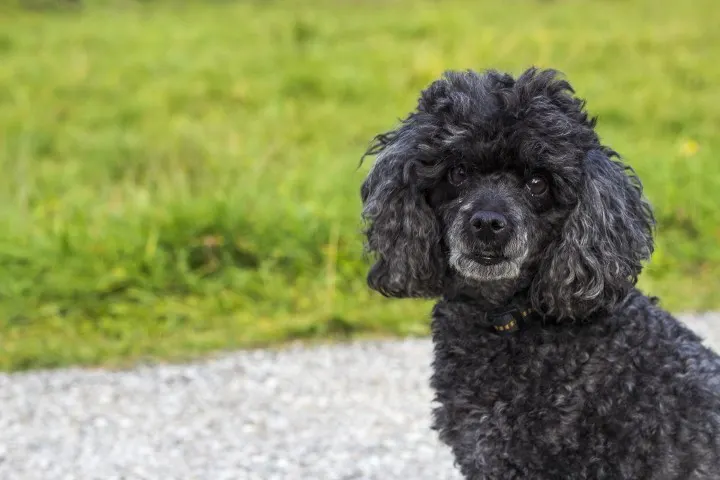 Do Spayed & Neutered Poodle Shed Less?
Do Spayed & Neutered Poodle Shed Less?
Since the hormones change in a female dog resulting in a spike in estrogen when they are in heat and after giving birth to a litter of pups, eliminating this change may help stabilize hormones which affect hair loss.
You may, however, notice your dog loses an excessive amount of fur after she has been spayed or he has been neutered due to the imbalance in hormones those procedures cause.
Do Poodle Puppies Shed More Than Adult Dogs?
Poodle puppies tend to shed more fur than adults because they are still growing. This does tend to even out more as the puppies reach adulthood.
Since Poodles are a breed that needs regular grooming, it’s best to start with the young, so they are used to it and even enjoy it.
Heather is an animal lover that has many of them herself. She currently has her Blue Nose Staffy named Bootsie, but she’s catered to many animals over the years including guinea pigs, alpacas, cockatiels, cockatoos, bunnies, chinchillas, hedgehogs, and more. She believes that knowledge should be the foundation of caring for any pet.

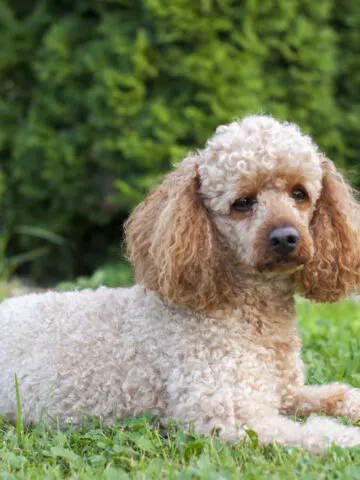

Leave a comment
You must be logged in to post a comment.